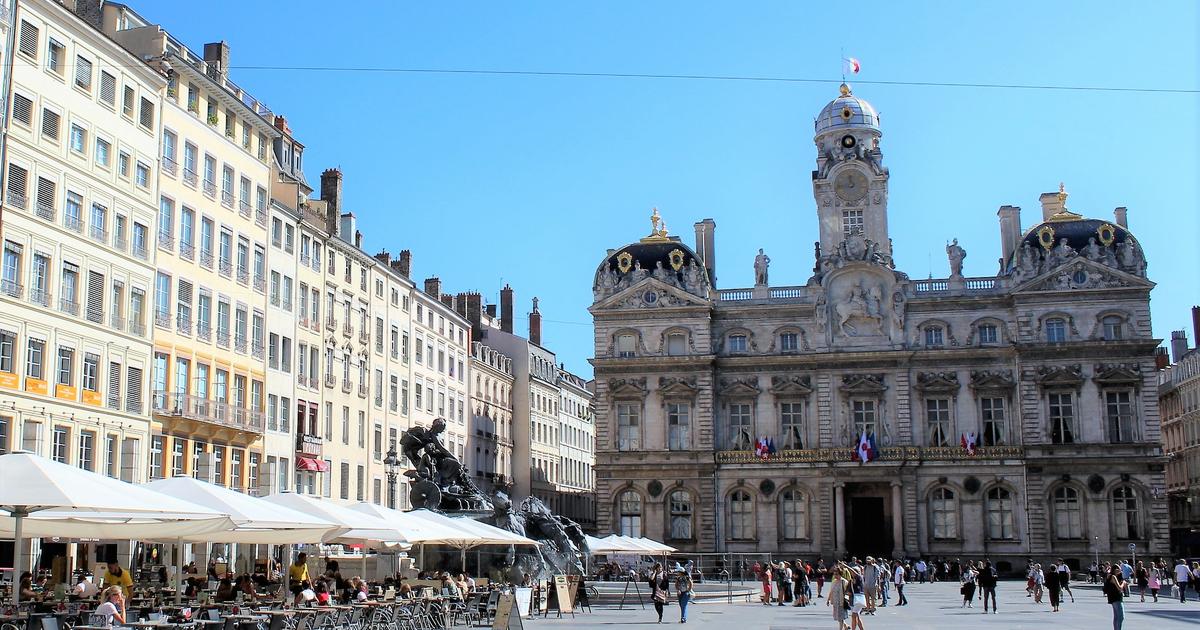By taking a look at his sales receipt, during his last trip to his hyper Carrefour, David, a computer scientist, almost choked. "I got it for 430 euros!" It is almost double our usual food budget, ”sighs this father of two children, living in Seine-et-Marne and confined to his home with his family because of the epidemic of Covid-19.
For many, this period of confinement is synonymous with an explosion in the amount of shopping: according to the Iri Institute, which specializes in analyzing data from mass consumption products, the average basket in hypermarkets and supermarkets has jumped 89% last week, even though these two circuits recorded a 47% drop in traffic!
"We go less in the big points of sale but the trolleys are much more supplied", underlines Emily Mayer, expert in consumer products at Iri. Proof at Système U: while customers come less often, the average basket has gone from 40 to 80 euros.
"I'm afraid of what's going to happen"
Confined to her home in Colombes (Hauts-de-Seine) with her daughter, a student, Malika saw her shopping budget explode. "Before confinement, I had 50 euros per week. Today, it's at least 100 euros, ”sighs this 50-year-old civil servant whose net salary is around 1900 euros. Fearing the Covid-19 epidemic, this mother was forced to change her habits.
"Before, I did my shopping on Saturday morning at Leclerc, which is very good on prices and promotions, and the next day at the market for fresh food," she says. For more security, I decided to opt for home delivery via the Carrefour site. "
And during his two online orders, the bill quickly climbed. “On fresh produce or fruit and vegetables, it's already more expensive than what I could find on the market. I also buy more than usual - rice, canned food - because I am afraid of what will happen. But above all, the choice is limited among the references because of the breaks. You can only take the products available, and they are rarely the cheapest. "
And to cite the example of water: “I don't trust tap water, so I buy in bottles. I had to order Evian, the only reference available at the time, which is already quite expensive. But as there were no more in 1.5 liter bottles, I was offered to take small bottles that cost twice as much. "
“It pays me” newsletter
The newsletter that improves your purchasing powerI'm registering
Your email address is collected by Le Parisien to allow you to receive our news and commercial offers. Find out more
Being forced to eat at home also puts a strain on your budget. “I used to pay for my lunches with restaurant tickets while my daughter ate her meals at the university restaurant. With a "large mortgage on the back", she now fears that it will be difficult to make ends meet if the confinement lasts too long. “No one knows where we are going or how long we will be in this situation. "
Three meals a day at home
If the note is more salty today, the price of items is not for nothing, except for certain fruits and vegetables. Inflation is almost zero on consumer products according to Iri, who especially notes a change in habits. Closure of restaurants and canteens requires, customers are referred to the purchase of mass consumption products in supermarkets: this delay will be in the range of 10 to 15%. “There are many more at home, with two or three meals a day to eat. Inevitably, we buy more, “says the expert.
Moreover, the savings made by these individuals who no longer have lunch outside do not always cover the expenses generated by these meals now taken at home. "My shopping budget has increased by 30% in the last two weeks," says Elisabeth, a teacher and mother of two, including a 16-year-old girl, who had lunch in the canteen for 3.20 euros per day. "Dining at home is more expensive for me," she says. And this is even more true for all these families whose children could benefit from the free canteen.
> TO PRINT A day of balanced meals during confinement, the advice of a dietician
In addition, even if the phenomenon of overstocking tends to decrease, this fear of missing pushes the consumer to buy always more. "If he sees eggs or flour, even if he doesn't need them, he'll still take them, since it's hard to find," says Emily Mayer.
Another phenomenon playing on the global addition: during their purchases, customers are sometimes forced to buy higher-end products than usual because of the phenomenon of occasional shortages. If classic pasta is lacking, they have no choice but to turn to premium brands.
Fewer promotions and fewer choices
As such, the virtual disappearance of promotions in supermarkets does not help to reduce the final ticket. Like other brands, Franprix has reduced promotional offers in its stores as much as possible "to avoid break-up phenomena and because suppliers focus on the production of basics, because the production chains are saturated. "The brand also points out that" promotional operations require time in the store "(markup, promotion, etc.) and" we prefer that they focus on more basic missions such as filling, cashing ", continues Franprix.
Fewer promotions, fewer choices on the shelves, more people to feed ... The consumer is also going faster now. Or, in any case, he prefers to contact the point of sale which gives him the impression of being the most "safe". No more traveling for miles to find the best price.
The fall in attendance by hypermarkets (-8% last week), where prices can be cheaper and the assortment larger, attests to this. For fear of being in the middle of a crowd, the customer favors e-commerce, the star circuit of this period of confinement (the drive or home delivery), or local shops. And it doesn't matter if it's more expensive.
The prices of hundreds of blocked items
In his three shops, Jean-Baptiste Bissonnet, director of the Butchers of Nivernais, saw the average basket increase by 30 to 40%. “There are our regulars, of course, who move less but do bigger races. But we also have new customers, ”he says, recognizing that his turnover is increasing. The Alancienne site has also seen its activity triple (from 500 to 1,500 orders per week), and its average ticket went from 50 to 60 euros.
Suffice to say that in this period, the purchasing power of the French is severely tested. Even more with the closure of general discounters (Action, Normal, Noz, Babou or Stockomani) where customers could stock up on sweets, laundry or soap at reduced prices.
Leclerc and Intermarché have understood this well. In order to help their customers, the two brands have committed to block the price of several thousand products (4,000 for Leclerc and 10,000 for Intermarché) while Carrefour must announce in the coming hours a similar measure relating to “500 daily products big brands ”. Another positive point, finally, which concerns all French people: if shopping costs them more, they are however certain to save on their outing, restaurant or fuel budget. What to balance their finances? Not sure.
VIDEO. Coronavirus: "Our activity has increased by 30%", assures the manager of a drive












